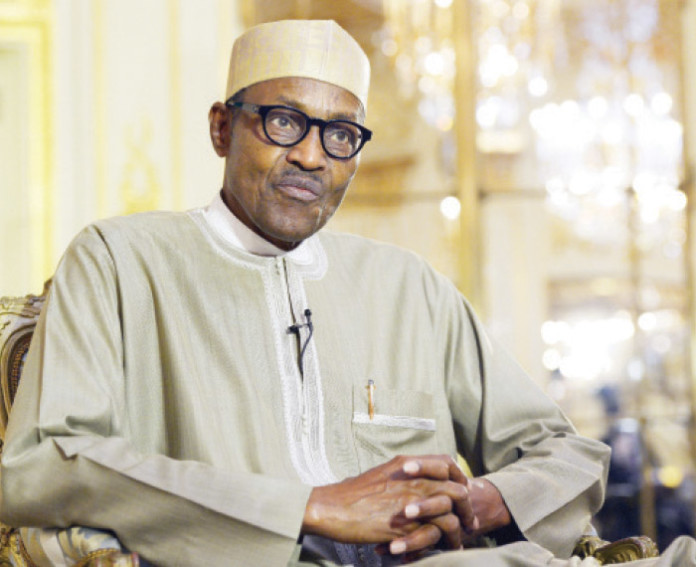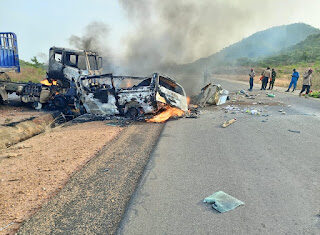In the past one year, President Muhammadu Buhari has been all over the world in search of Nigeria’s stolen money and development partners. Popular perception is that the effort has not been in vain, writes SAM NWOKORO.
President Muhammadu Buhari spent a good part of his one year in office globe-trotting for the ‘common good’. This was understandable given the nature of diplomatic relation that existed between Nigeria and her foreign friends before he came into office.
From 1999 to 2015, there was neo-liberal intercourse between Nigeria and the outside world, especially United States of America and Europe.
Olusegun Obasanjo was sworn in as Nigeria’s democratically-elected president in 1999, after 14 uninterrupted years of military rule that never bothered about how the outside world viewed the country’s politics. It was a dark era diplomatically, so to speak. The intervening military rulers never bothered about democratic credentials. The regime of Sani Abacha (now the late) eclipsed Nigeria from global reckoning, and the country suffered ostracism in the international community on account of the dark-goggled General’s anti-democratic tendencies. This cost Nigeria a lot of economic and political goodwill from countries that mattered.
Thus the frustration Nigeria went through during the military era was enough bait for the Obasanjo regime to court the friendship of the western world which helped return the country to democratic rule in the first place. Thus at the turn of the century, western ideals in the political and economic spheres had taken hold of Nigeria, propelled largely also by the mammoth financial and material aids that were pouring into Nigeria. Subsequent Nigerian leaders down to Goodluck Jonathan era followed suit.
However, since those countries, especially the United States, France, Britain, Germany, Italy and China, mattered much in Nigeria’s diplomatic intercourse on account of their investments and leverage in the international fora, the Buhari government had no choice but to make these powerful countries and the other supranational groups like the G7, Economic Community of West African States (ECOWAS), African Union (AU), European Union (EU), Commonwealth of Nations and United Nations (UN) the focal point of his diplomatic engagements. All these nations and blocs played active roles in seeing to his emergence as Nigeria’s president in 2015.
Focus
President Buhari’s diplomatic objectives in the past one year could be summarised in the following words: consolidate on existing bilateral and multilateral engagements to maintain strategic friends whose stake in Nigeria is of fundamental implication to the present and future growth of the nation; pursue foreign policy engagements that would drive investments into the economy and help in prosecuting the war against terrorism, especially Boko Haram; help the country recover most of her money stolen by corrupt officials; and help strengthen Nigeria’s efforts in critical sectors of the economy such as agriculture, power, energy and provide access to Nigerian markets.
Here TheNiche itemises some of the foreign policy engagements of the President in the past one year, and the accrued or potential benefits.
The G7
Buhari’s first port of call. In fact, sooner had he taken over as president than he started receiving invitations to the spring meeting of the group of seven industrialised nations which held between June 7 and 8 in Germany last year. It was a kind of extension of the olive branch to the President.
The former military head of state had stated his motive for honouring the invitation, the first as soon as he was inaugurated. He said: “We have a problem which they know. These development issues, many and varied as they are, touch on the economy; combating corruption, increasing foreign direct investment (FDI), power and energy, infrastructure, environment, enhanced transparency in election and good governance.”
At the summit, President Barack Obama of the U.S. emphasised: “Our discussions with Prime Minister (Haider Jawad Kadhim) Al-Abadi of Iraq, President (Beji) Caid Essebsi of Tunisia, and President Buhari of Nigeria were a chance to address threats of ISIL (Islamic State of Iraq and the Levant) and Boko Haram. The G7 countries agreed to work together and with our partners to further coordinate our counter-terrorism efforts.”
Loot recovery
The President’s many diplomatic efforts throughout the past one year were not in vain in the area of recovering Nigeria’s money stolen and stashed abroad. Even general perception at home is that accruals in this regard is minuscule compared to what is hidden in foreign lands. For instance, the federal government has publicly announced that it has recovered from Swiss authorities three tranches of $200 million, $380 million and $780 million.
Even at that, many believe the President has tried so far, considering the many obstacles being placed on his administration’s path in the loot recovery effort.
Buhari has also shown by his diplomatic engagements that graft is one issue he expects maximum collaboration with Nigeria’s bilateral friends, especially those whose huge investments in Nigeria require infrastructure. Hence he has not missed any international fora where the subject in focus bordered on corruption. An instance was his latest trip to London for the world leaders summit on corruption. Commentators in and outside the country believe the President is genuinely serious with the issue of recovering Nigeria’s stolen funds and stridently defended his diplomatic conducts so far.
Anti-terrorism diplomacy
Another fruitful diplomatic engagement of the President in the past one year is his determined effort against terrorism despite the hydra-headed nature of the problem. Buhari’s travels to U.S., France and Britain were a success in terms of beefing up the nation’s armoury. For the first time, the terrorists have been pushed backwards. They no longer take territories, as Buhari moved the military command to the North East. They only send out inductees on suicide missions. During the week, one of those inductees reportedly disappointed her mentors when she refused to bomb a Kano market as directed. She, instead, absconded.
Also, Mr. President was able to attract $5 billion from Washington in prosecution of the war against insurgency in the North. Military hardware of various descriptions were acquired for the ECOWAS-assembled Joint Task Force comprising 7,000 troops from Benin Republic, Cameroon, Chad, Niger, Mali and Togo fighting the insurgency in the North East. He is also making effort to get the U.S. sell to Nigeria additional 12 A-20 Super Tucno fighter jets for the same purpose. To cap his genuine effort in this direction, the Presidency only few days ago received one of the held Chibok girls who was rescued by the JTF in the outskirts of the Zambisa forest.
Security
The President has also stridently tried to consolidate on the peace and security architecture of ECOWAS and AU which was started at the wake of Boko Haram insurgency. Buhari has toed that line in consolidating the performance level of the JTF. He has been able to keep the tempo in getting the world respond to the refugee crisis of internally-displaced persons (IDPs) caused by the onslaught of Boko Haram. Various helps have been coming in that regard.
Investment
The Buhari administration has managed to keep investments trickling in. Most of the promises made to him by friendly nations are being redeemed. For instance, the U.S. has included Nigeria in its Power Africa initiative in which rural communities will benefit. France has advanced some $100 million through French Development Agency and Zenith Bank to help provide soft loans to electricity generating and distribution companies in Nigeria, to accelerate development in that sector. United States Agency for International Development (USAID), Germany and virtually most of the big powers that promised to assist his government in one way or another when he was sworn in last year have visited Nigeria, some with quality trade delegations and investment proposals in the private sector. Germany has registered interest in purchasing more of Nigeria’s liquefied natural gas (LNG). So far, it is consolidation going on.
The China card
One of Buhari’s major foreign policy breakthroughs is the alignment of Nigeria’s naira to Chinese yuan exchange rate mechanism. Though this policy has been hailed, reservations about the scheme’s ability to address Nigeria’s forex problems linger in some quarters. However optimists believe that the scheme can enhance Nigeria’s trade and exchange rate system, if government does its home work well in improving macro-economic factors at home. Not everything about the romance with China has received total acclaim. Though, for now, it looks like a new bride capable of bringing in good tidings in a quarrelsome home.
Supranational bodies
Nigeria under Buhari has managed to retain her integrity in the international community. There is nothing in the horizon for now to suggest that Nigeria has any issue with what the ECOWAS, AU, EU, UN and others have in their treaties and protocols of which Nigeria is a signatory.
And so far under Buhari, Nigeria is not complaining of anything against the various supranational blocs she belongs to short of demanding that UN craft laws to prevent sovereign members from accepting or allowing institutions in their domain to harbour stolen wealth from public treasury. Buhari made this latest call while he spoke at the global summit on corruption convened by British Prime Minister, David Cameron.
“All I will demand is the return of assets. I have already mentioned how Britain really led and how disgraceful one of the Nigerian executives was; he had to dress like a woman to leave Britain and leave behind his bank account and fixed assets, which Britain is prepared to hand over to us,” Buhari said at the summit.
Though his request was not punctured by any of the participants, it was obvious the the Nigerian president spoke the mind of many other leaders of especially developing economies whose citizens cart away state funds and hide them in the already advanced economies which later place almost insurmountable hurdles for the retrieval of such funds.













